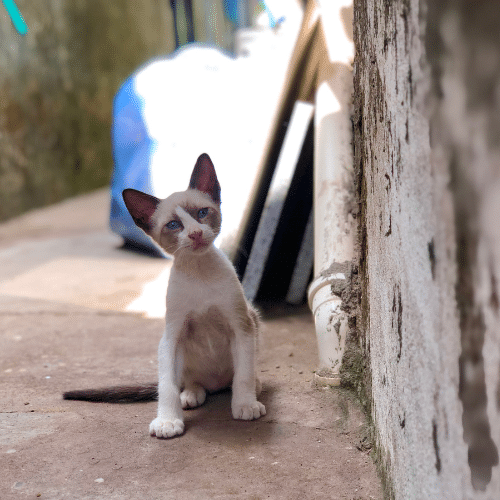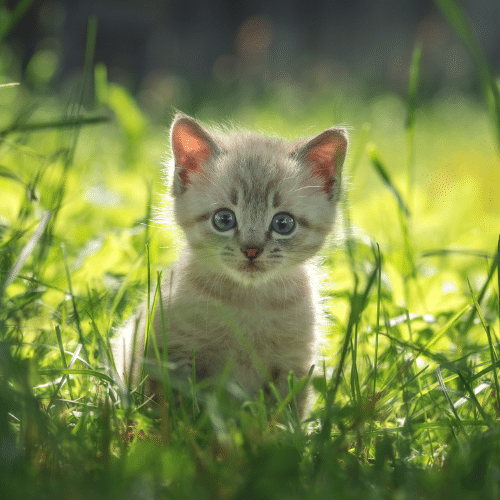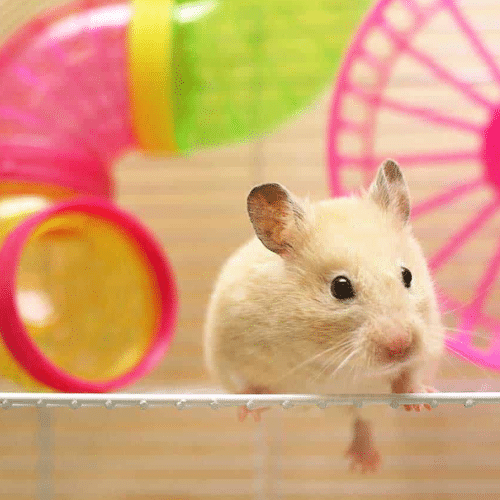If you have a kitten eating well and not gaining weight, then as a potential feline parent, you must be worried about why this is happening. So, let us discuss why kittens are not gaining weight.
Kittens that eat a healthy diet but do not put on any weight must be subjected to omphalophlebitis, unhygienic location, unlikely foods, internal diseases, and unclean food bowls.
All these five factors contribute to the young kitten’s proper health and optimal weight.

5 Reasons Why the Kitten Is Not Gaining Weight?
- Omphalophlebitis
Omphalophlebitis is the scientific term used for belly button infections. It is possible for bacteria to ascend from the area of the umbilical cord that was severed during a cesarean section or that was torn apart by the mother kitty.
- Unhygienic Location
Unhygienic places or areas also lead to the spread of infection, ultimately stopping healthy weight gain in kittens. So, try to restrict the area of your feline companions and always provide them with clean space.
- Unlikely Foods
Unusual treats and foods such as spices or human-made foods are not good for the kitten’s stomach. This unusual food can alter their digestive system and lead to weakness or abnormal growth. This ultimately decreases the normal weight gain.
- Internal Disease
The most common factor contributing to health problems or abnormal weight gain in kittens is the presence of infections or parasites. Your kitten may have a parasite if it suddenly starts having diarrhea. Coccidia, which may flourish and multiply in your young kitten’s gut, and infectious agents, can cause your young kitten to lose weight and experience a decline in their overall health.
- Unclean Food Bowl
Dirty or unclean food trays/bowls also alter normal weight gain in kittens. It is because dirty food trays may support the growth of mold and bacteria and if you use dirty food trays to offer kitten food to feline companions, they may lead to severe infection and abnormal weight gain.
How to Help a Kitten Gain Weight?
Identifying the root of a problem that prevents normal growth in kittens is of the utmost importance. Fortunately, there are certain things you can do that will always be helpful, and this is regardless of the reason why your cat or kitten is growing slowly:

- Select Correct Diet
Determine the appropriate nutrition for a kitten. Find a meal your kitten loves eating but doesn’t make their stomach uncomfortable. This is the most critical stage in the initial process. You need to choose a dish that can fulfill their nutritional needs while also appealing to their taste buds so they will desire to consume it. Raw or wet food generally has a higher protein concentration, whereas dry food has a lower concentration of carbs. In addition, it appears that cats, particularly those with difficulty locating an appetite, take to it more quickly than they do to dry food.
- Maintain Hygiene
While providing your kitten with food, ensure that the feeding area is clean and that correct hygiene is followed.
- Consult with Vet
A few medications can help boost your kitten’s appetite, and they are all available from your veterinarian. Your kitten will need to feed around an hour or so after it has been given the medication. You may also ask your veterinarian whether the medication is available in a transdermal version, a patch or gel applied to the skin or gums. This will allow you to administer the medication without giving your pet a pill.
- Warming Cat’s Wet Food
The aroma of a cat’s food compels them to take a bite. Warming up wet food can help give it a stronger scent, which will, in turn, make it more appetizing to your kitten. Put the food your cat eats into a bowl safe for the microwave, and then heat it up in the microwave for just a few seconds. The ideal temperature for kitten wet food must be very close to their own internal temperature, which is 40 degrees Celsius.
- Solve Cat’s Anxiety
Research has shown that contented kitties are more likely to have healthy appetites. Hunting and feeding are both solitary activities for cats. That indicates that they choose to eat their meals peacefully without being interrupted.
It is ordinary to feel the need to constantly watch over your sick cat when they are in your care. However, if you allow your cat some breathing room, they will probably eat better.
- Change the Flavour Frequently
Your cat’s weight gain may benefit from the consumption of nutritious snacks in between meals. Between each meal, you might want to try luring your cat in with a few easy bits of frozen-dried chicken packed in protein.
- Vaccination
Proper vaccination ensures the excellent health of kittens, thus indirectly increasing weight gain and reducing the number of infections (due to already present antibodies).
- How to Know if Dry Cat Food Is Spoiled?
- How to Keep Cats From Going Upstairs? [Guide]
- My Cat Hates Me but Loves Everyone Else [Explanation]
- Moss Water for Cats [Ultimate Guide]
FAQ
Question: Will Milk Help a Cat Gain Weight?
Answer: Yes, kittens might get weight via using milk. If your kitty needs to gain weight or has health problems that make solid food difficult to digest, your vet may prescribe lactose-free milk with taurine.
Question: How Often Should I Feed a Skinny Kitten?
Answer: Kittens younger than two weeks old should be given food at least once every two hours. Kittens between the ages of 2 and 4 weeks old need to eat after every four hours. It is unnecessary to wake them up to feed them if they sleep for extended amounts of time during the night. Increase the frequency of feedings for any overweight kittens or not eating enough.
Question: What Does an Underweight Kitten Look Like?
Answer: You can use the back of your hand as a point of comparison to gauge your kitten’s overall health. You can tell whether your kitten is the proper weight by feeling its ribs placed behind its front legs; if it feels like the back of your hand, then they are the correct size. If the ribs on your kitten seem or feel similar to the knuckles on your fingers, then you have a skinny kitten.
Verdict
As soon as you have identified why kittens are not gaining weight, it is essential to eliminate the problem at its source. The easiest method to begin addressing the issue of decreased weight in kittens is to take them to the veterinarian for a checkup. During this exam, the veterinarian will look for signs of conditions such as roundworms, belly button inflammation, or any other infection.

Veterinarian (DVM, MS) Content Writer, Blogger, and WordPress Developer. Working as a pet/animal/bird/fish/reptile/wildlife writer for the past 7 years on many renowned platforms.




